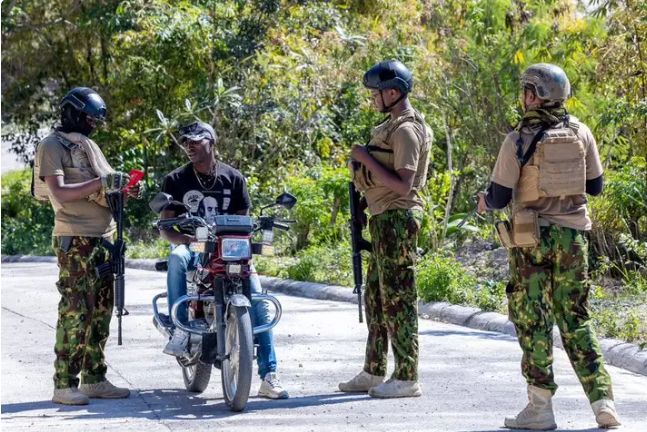Haiti continues to suffer from relentless gang violence, with the latest tragedy being the killing of a police officer by criminal groups operating in the region. The officer’s death is yet another example of how gangs have become a dominant force, terrorizing both civilians and law enforcement.
The situation has worsened over time, with gangs expanding their control over neighborhoods, roads, and even vital services. Law enforcement officers now find themselves in constant danger, trying to maintain order in a country where crime syndicates operate with impunity.
This latest attack not only highlights the risks officers face but also the brutal tactics employed by gangs. In a shocking act of cruelty, a video was shared on social media showing gang members disrespecting the deceased officer’s body. The footage, which shows the gang slapping the lifeless body, is a grim reminder of the deep-seated lawlessness in Haiti.
The use of social media to broadcast such acts raises serious concerns about how violence is being glorified and weaponized to spread fear. Gangs are increasingly using these platforms to send messages of intimidation, not only to the police but also to the general public.
The rise of gang violence in Haiti is closely tied to political instability, poverty, and a weakened law enforcement system. For years, gangs have grown in influence, often filling the power vacuum left by ineffective governance.
They have resorted to extortion, kidnapping, and violent takeovers of businesses and communities. Some groups now exert more control over certain regions than the government itself.
In Port-au-Prince, many areas are practically no-go zones for the police, as gangs dictate the rules of daily life. With limited resources and a lack of reinforcements, officers are struggling to combat these well-armed groups, leading to a dangerous cycle of killings and retaliation.
The frequency of police killings has escalated in recent years, further weakening the morale of the force. Officers are being targeted precisely because they stand in the way of gang operations.
Many law enforcement personnel operate under poor conditions, with shortages of equipment, inadequate training, and delays in reinforcement.
This has left them vulnerable, as they face increasingly bold criminal groups who have access to weapons and money from illegal activities.
The international community has been urged to step in and help stabilize the country, but efforts to restore order have faced setbacks due to deep-rooted political and economic challenges.
Haiti’s crisis is not new, but each violent act underscores how dire the situation has become.
The killing of a police officer and the disrespect shown to his body reveal the extent to which criminal groups have eroded the rule of law. Without urgent intervention, the country risks falling further into chaos, with law enforcement unable to stem the growing wave of violence.
The tragic reality is that unless concrete action is taken, the death of police officers at the hands of gangs will remain a grim and recurring headline.

